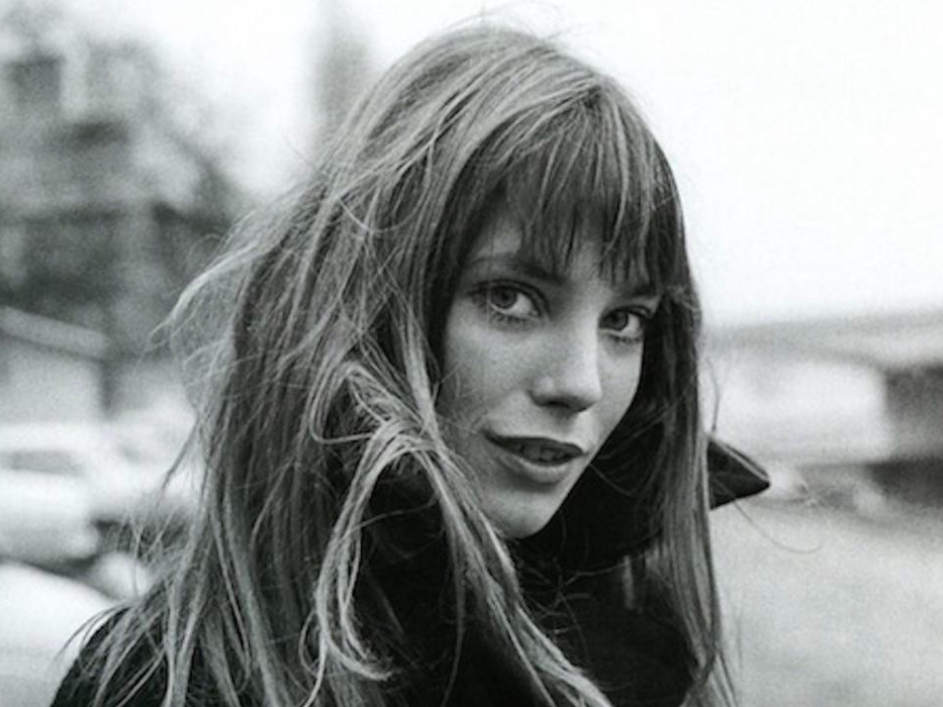
Jane Birkin, the English singer, actress, and style icon known for her Sixties fashion, passed away on Sunday 16 July at the age of 76, according to a report from Le Parisien.
Jane Birkin was found unresponsive at her home in Paris by her caregiver. She had recently cancelled tour dates in May due to health concerns, had suffered a minor stroke in 2021 and had battled leukemia since the early noughties. Despite this, as early as last year, Birkin said in an interview, “All around me people are falling like ninepins. I just feel very lucky to be able to walk down the street and do my own shopping and be independent.”
Tributes have poured following the news of her death. Though born in London, Jane Birkin spent most of her life in Paris and is closely linked with the city. She was awarded both an OBE and the French Odre National du Mérite in her lifetime. French President Emmanuel Macron was one of the first to comment on her passing, saying, “Jane Birkin was a French Icon.” Brigitte Bardot, a friend and former co-star of Jane Birkin said, “When you’re so pretty, so fresh, so spontaneous, with the voice of a child, you haven’t got the right to die.”
Jane Birkin was born on 14 December 1946 in London, England to actress mother Judy Campbell and Royal Navy lieutenant-commander father David Birkin. She has said that her early life was happy, but her private and boarding school years were less so due to being cruelly bullied. She had early ambitions of nursing or to be a “do-gooder”, as she told the Financial Times in 2010.
Birkin was married to film composer John Barry for a short amount of time until he left her after she got pregnant with their daughter Kate Barry (who passed away in 2013).
Jane Birkin first rose to major fame after she appeared nude in Michelangelo Antonioni’s cult 1966 film Blow-Up. In 1969, she acted in the French film Slogan (despite speaking very little French). “Without my accent, I would have had a different career,” she said in 2017. “The French gave me a real gift in accepting me very quickly. They found me amusing, in large part because of my accent and the mistakes I made in French. It’s no doubt one of the reasons I never sought to improve it.”
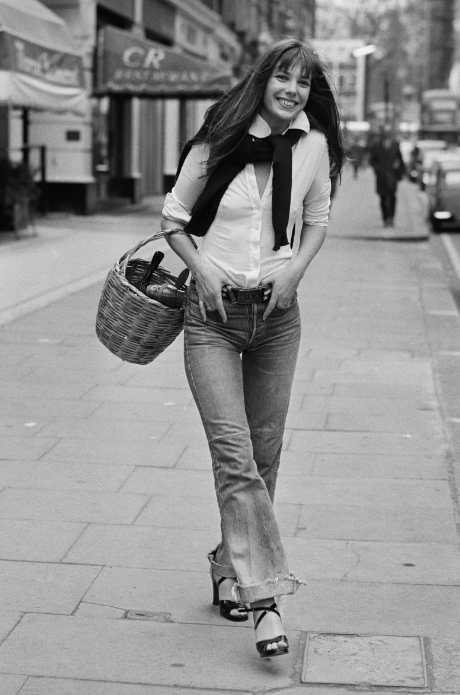
There she met and fell in love with her co-star Serge Gainsbourg. This film, and meeting, would change her life. Not only would this mark the beginning of her career in French cinema, but her 12-year partnership with Gainsbourg – artistically as well as romantically – would relocate her permanently to Paris, and would go on to define her.
Despite their split in 1980, the entwinement of Birkin and Gainsbourg was something Birkin said, in 2017, that she cherished. “Serge reconciled me with myself. When a man loves you, it changes everything.” The couple would famously party all night and come home in time to wake up their children (Kate, and their daughter Charlotte) in time for school.
Birkin called it her “fantasy” life. They were the “It” couple of the time. She also performed the vocals on Gainsbourg’s 1969 duet “Je t’aime… moi non plus”, which helped serve as another important stimulant for her six-decade-strong singing career.
She had a third daughter, Lou, with French film director Jacques Doillon in 1982. Birkin starred in two of his films, La Fille Prodigue (1981) and La Pirate (1984), for which she was nominated for a César Award. She was also nominated for a Best Actress César Award for her performance in Gainsbourg’s first film, Je t’aim moi non plus (1976).
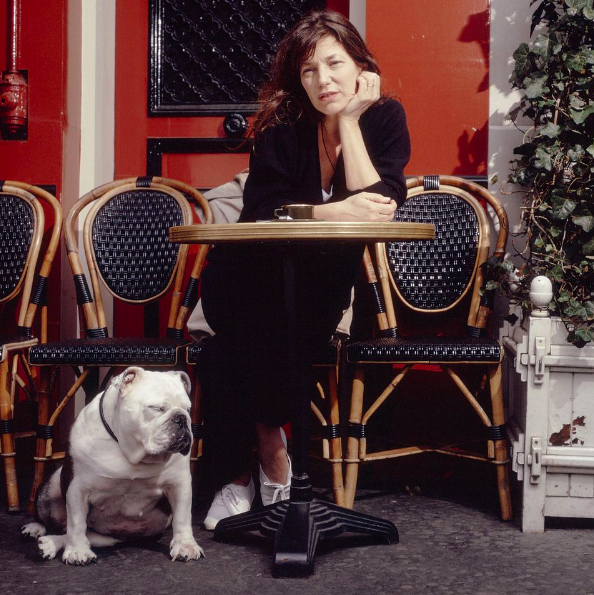
She continued to act – being featured in over 70 films – and sing. She released 14 studio albums and six live albums throughout her career and was still touring well into her seventies. Birkin was also a big humanitarian – working consistently with Amnesty International, specifically on refugee issues and the AIDS epidemic. She was frequently an outspoken feminist and advocate for LGBTQ+ rights and had last been seen showing her support for the woman’s protests in Iran last year.
It’s Birkin’s individual style, however, that made her one of the most enduring style icons of all time. An enduring and uncontested fashion, Birkin’s androgynous figure, doe eyes and fringed hair first charmed from Chelsea to Cannes. There were tiny minidresses (which would often get her turned away from restaurants in the 1970s), laissez-faire men’s shirts, bell-bottoms and braces.
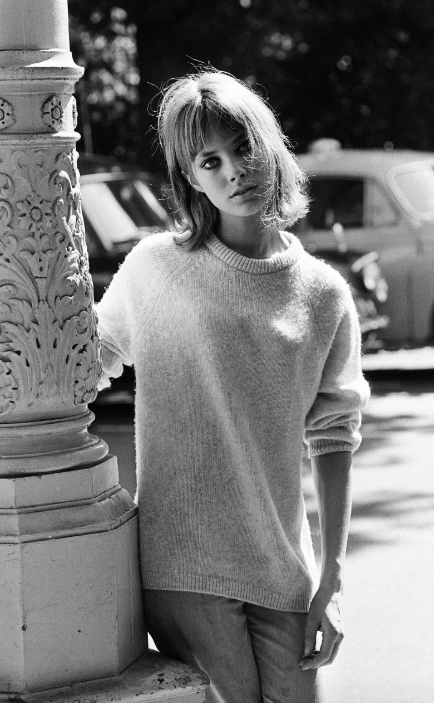
Her namesake Hermès bag – which came to be from a chance encounter in high-flying circles – was released in 1984. “I was on an airplane when a plastic bag holding all my things broke and everything fell out – my date book, papers, everything,” she told T: The New York Times Style Magazine in 2010. “Just as I was saying how I wished Hermès would make a bag that could fit all my things, the man sitting next to me happened to work for Hermès – it was Jean-Louis Dumas, the head designer! They already had the Kelly bag, named after Grace Kelly, so he began work on the Birkin bag. I went down to the atelier and he had made it in cardboard. And we talked about it and I said they should make some changes, like making pockets bigger. And that’s how it was made.” In 2015, Birkin asked Hermès to remove her name from its handbag following a PETA investigation into the manufacturer’s alleged treatment of crocodiles and alligators.

Jane Birkin is survived by her daughters, the actress and singer Charlotte Gainsbourg and model, actress and singer Lou Doillon.
beauty beauty trends celebrities celebrity news christmas christmas movies coffee dating fall fashion fashion fashion designers fashion trends fashion week fitness hailey bieber hair trends halloween harry potter health Instagram Justin Bieber kate middleton King Charles meghan markle mental health milan fashion week movies music netflix new york city paris paris fashion week pregnancy prince harry princess diana prince william relationships royal family royals skincare street style television travel valentine's day wellness
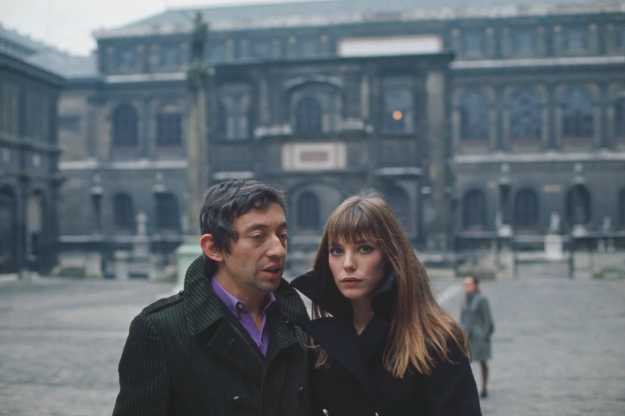
Photo: Getty Images